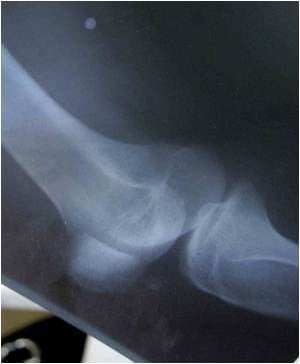
"The bottom line is this is a very effective drug for relieving pain; unfortunately, it appears some people go on to have their osteoarthritis progress more quickly," said Thomas Schnitzer, M.D., a rheumatologist and professor in the department of physical medicine and rehabilitation at Northwestern Medicine. "The long-term safety of tanezumab needs to be better understood."
Schnitzer is a principal investigator and lead author of a paper on the research, which will be published Aug. 26 in the New England Journal of Medicine. He also was an investigator on the phase III trial. The other lead author and principal investigator is Nancy Lane, M.D., a professor of internal medicine at UC Davis School of Medicine.
Tanezumab is the first new drug for general muscle or joint pain in over 100 years, Schnitzer said, noting nonsteroidals and COX inhibitors are a "fancy form of aspirin."
"It's very exciting to have a new approach to manage pain for osteoarthritis," he said.
Other drugs currently used to treat pain have significant side effects -- bleeding, ulcers and an increase in heart attacks -- that limit their use.
Advertisement
"The effects of tanezumab were remarkable," Lane said. "People on the drug went from having very limited activity to practically being on the dance floor. No medication available today has such dramatic results."
Advertisement
In the phase II study of 440 patients, treatment with tanezumab reduced knee pain during walking by 45 to 62 percent compared to 22 percent reduction in pain with a placebo. The pain scores were equal to or lower than those reported by patients during screening while taking their prior pain medication.
Schnitzer said the Food and Drug Administration (FDA) is examining data to decide how to proceed.
"The FDA may decide it's too dangerous overall or, rather, that there may be a specific patient population in which it should not be used or who need to be warned about possible serious side effects," he said.
The drug works by neutralizing or blocking Nerve Growth Factor (NGF), a molecule needed for normal development of the nervous system, but which also gets released when there is inflammation in the body. NGF stimulates nerve cells and triggers pain.
Nearly 27 million adults in the United States have osteoarthritis, according to the U.S. Department of Commerce, and about 40 percent suffer from knee osteoarthritis. The number of people with osteoarthritis is expected to rise as baby boomers reach retirement age and as the number of obese Americans increases. Half of all adults will develop symptoms in the knee at some point in their lives.
Source-Eurekalert













